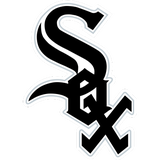
MLB Opening Day Countdown: #79
After we started this new series of countdown posts with #81, yesterday there were no players that have worn the number 80. Today we return to continue the countdown to MLB Opening Day with #79.
While there haven’t been many players to don this number in MLB history, one of the players to have done so is currently playing and is a former all-star. That player is Jose Abreu of the (for now) Chicago White Sox.
Abreu came into the big leagues from Cuba at the age of 27 during the 2014 season. After a 36 home run, 107 RBI season, the slugger took home the Rookie of the Year award and finished fourth on the MVP ballot behind Mike Trout, Victor Martinez and Michael Brantley. If you were to judge the award solely on bWAR from that year, Trout still would have won, but Corey Kluber (11th) and Josh Donaldson (8th) would have rounded out the top three while Abreu and Martinez would have placed 12th and 13th. Comparatively, the 2016 field would have had the same top four if the award was judged solely on WAR, so either the writers are getting lazy, or they’re coming around to a new way of looking at things.
The second player to wear the number 79 was Jean Machi back in 2012 during his first season with the San Francisco Giants. Machi was 30 when he made his debut and only tallied 6 2/3 innings that season to the tune of a 6.75 ERA as a September call-up. Machi didn’t make the postseason roster that year, but when the Giants went for their third World Series title in five years in 2014, Machi handled 5 2/3 innings during their postseason run. By that time he was wearing number 63, however. Machi was put on waivers the following July and picked up by the Red Sox.
More from Call to the Pen
Machi spent 2016 pitching in the minor leagues for both the Chicago Cubs and the San Francisco Giants.
The final MLB player to wear number 79 was Justin De Fratus, who in his time with the Philadelphia Phillies has had three different numbers. Oddly enough, this high number was not the one that he was given when he debuted in 2011, but instead the number he was given for the 2012 and 2013 seasons. Typically a higher number is given to a rookie making their debut because only certain numbers are available, and the higher the uniform number the more likely it is to be free. Instead, De Fratus went from #37 (’11) to #79 (’12-’13) to #30 (’14-’15). In looking at the numbers and which years they have been in use, there is seemingly no rhyme or reason for this. 79 was available from the get go, as was number 30, which had last been worn by Cory Lidle in 2006.
After hitting free agency in 2015, he signed with the Seattle Mariners who released him on March 16th of 2016 only to re-sign him two days later. Seattle then traded him in June to complete an earlier trade with the Texas Rangers. Texas released him a month later, only for the Washington Nationals to pick him up in the latter half of the month. De Fratus is currently on the free agent market. In just looking at his stat line, it’s hard to see what the problem has been given the small sample sizes, but with the Triple-A affiliates of the Rangers (8.7 BB/9) and Nationals (2.000 WHIP) there was certainly something up.
The ’79 World Series was won by the “We Are Family” Pittsburgh Pirates in seven games over the Baltimore Orioles. A 39-year-old Willie Stargell who had transitioned to manning first at this point in his career, ended up co-winning the National League MVP award after hitting .281 with a .352 OBP to go along with 32 homers and 82 driven in. He rode that co-MVP season into also collecting MVP awards in the NLCS against the Reds and in the World Series where he hit .400 with three homers and drove in seven of the Pirates 32 runs in the series. Going 4-for-5 with two RBI in the seventh and deciding game of the Series likely had a large role to play in determining the World Series MVP.
While Stargell has a case for the World Series MVP, his co-NL MVP award could deserve a closer look. In terms of bWAR, he ranked 25th with a 2.5, while Dave Winfield (8.3) Phil Niekro (8.0), Mike Schmidt (7.9) and co-MVP Keith Hernandez (7.6) were all well above the mark set by Stargell. After some close calls in MVP balloting in his younger days, Willie was likely given the award as a sort of career achievement. The 1979 season ended up being the last one that he would manage more than 100 games in his career, totaling 179 games played over the next three seasons.



